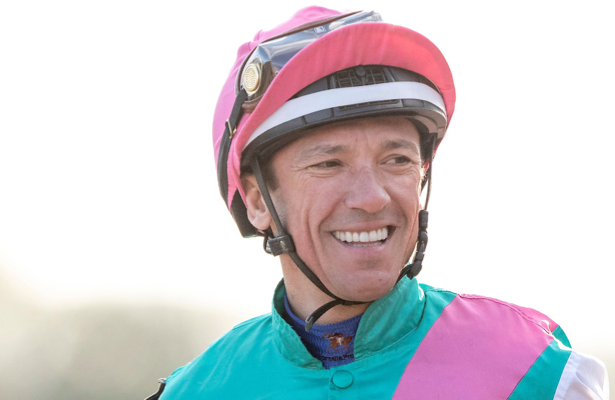Dettori the first to go back to back as World's Best Jockey
by Edited Press Release
Frankie Dettori continues to build upon his legacy, as he'll be crowned the 2019 Longines World’s Best Jockey next month in Hong Kong, it was announced Friday.
That makes Dettori the first jockey to win the award in back-to-back years. Overall, he has been named the World’s Best Jockey three times in the last five years, as he first took the title in 2015.
Dettori won eight of the world’s Top 100 Group or Grade 1 races aboard seven different horses in 2019. His qualifying victories came in the Prince of Wales's Stakes (Crystal Ocean), Gold Cup (Stradivarius), Grand Prix de Saint-Cloud (Coronet), Coral-Eclipse (Enable), King George VI & Queen Elizabeth Stakes (Enable), Qatar Sussex Stakes (Too Darn Hot), William Hill St Leger Stakes (Logician), and QIPCO British Champions Fillies & Mares Stakes (Star Catcher).
The scoring process rewards jockeys for finishing in the top three, giving Dettori a total of 102 points on the year. Second place went to Zac Purton, who finished with 88 points, while Hugh Bowman, the 2017 Longines World’s Best Jockey and regular rider of Winx, was third with 86 points.
Dettori is the only three-time winner of the Longines World’s Best Jockey award, which was established in 2014. Ryan Moore is a dual winner, having won in the inaugural year and in 2016.
A ceremony will be held during the gala dinner of the Longines Hong Kong International Races on Dec. 6 at the Hong Kong Convention & Exhibition Centre to recognize Dettori.
The awarding of the Longines World’s Best Jockey is based upon performances in the 100 highest-rated Group 1 and Grade 1 races as established for the year by the World’s Best Racehorse Rankings Committee. The scoring incorporates races from Dec. 1 of the previous year until Nov. 30 of the current year. Jockeys accrue 12 points for a win, 6 points for placing second, and 4 points for placing third.
The World’s Best Jockey Award was established six years ago by Swiss watch brand Longines and the IFHA as a way to quantitatively recognize a jockey as the best among his or her global peers. It marked the first time a rider was honored in such a way.